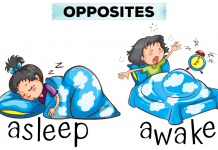Hello there, English learners!
How many of you have traveled on a trip? Come on, raise your hand.
That is what I thought. Of course, you have. (Does going to the mall count?)
Normally, I would say No! But in this case, I will say Yes!
Many of us love talking about the places that we have visited.
However, I see that some English speakers become confused between the two words TRIP and TRAVEL.
I inherently believe that one of the keys to understanding most languages, in particular English, is knowing the parts of speech.The parts of speech are a way of classifying words within a language. They are the nouns, the verbs, the adjectives, the adverbs, the pronouns, the articles, the prepositions, the conjunctions and the interjections.
Know these and you can conquer any language.
The word TRIP (in our sentence) is a noun. TRIP is a voyage or a journey.
When you go from one point to another, you go on a trip.
For example,
- I went on a trip in the 8th grade to Europe.
- Her trip will last for one month as she tours Australia.
- When the same word trip is used as a verb, the meaning changes completely!
- The word trip (as a verb) means to fall or slip or stumble.
Do you know when you are not looking where you are going and your foot catches something and you almost fall?
That my friends, is a trip.
For example,
- Sarah was walking down the street and she didn’t see the hole and almost tripped.
- I was walking and tripped from my un-tied shoelace.
- The word TRAVEL is a little more complicated and is a verb, a noun and an adjective.
Let’s look at one at a time.
TRAVEL as a verb is the most common usage of the word. If you are going to use the word TRAVEL in the beginning of your English career, you will most likely be using it as a verb.
When we use TRAVEL as a verb we are talking about going on a journey or from point A to point B.
Isn’t this the same as the word TRIP?
Close…
TRAVEL used as a verb means to go on a journey.
Whereas, TRIP when used as a noun means journey.
The fact that TRAVEL is used as a verb, changes the part of speech so that we are talking about an ACTION.
When you want to talk about an ACTION, use a verb.
When you want to talk about a THING, use a noun.
Pay attention to the part of speech and your understanding will increase a hundred fold.
Here are some examples of TRAVEL being used as verb:
- We usually travel once a year.
- The ant travelled from the kitchen to the living room.
- I travel by car when I go to work.
- He travelled 30 kilometers to get to the hospital.
When the word TRAVEL is used as a noun, things get a little confusing.
You need to add the letter S to the end to indicate a journey.
For example,
- My travels have taken me all over the world.
In all honesty, the word TRAVEL will more likely be used as an adjective than as a noun.
As an adjective, TRAVEL means something this is made for when traveling. It could be made smaller.
Here are some examples:
- A travel toothbrush
- Some travel shampoo
- A travel sewing kit
My advice to you is use simple sentences when using TRIP and TRAVEL.
Pay attention to which part of speech you need and you will be able to correctly choose between TRIP and TRAVEL.
Speaking a language is similar to hitting a tennis ball.
It would be great to be able to speak very fast, just like it would be great to hit a tennis ball very fast.
However, if my words go all over the place, then it doesn’t matter how fast I speak.
Similarly with the tennis ball analogy, if the ball doesn’t go inbounds, then it doesn’t matter how fast you hit the ball.
Speak slowly and your English will improve.
More for you:
Advice vs Advise: pronunciation, meaning, examples, related words …
During vs Through with Examples



























